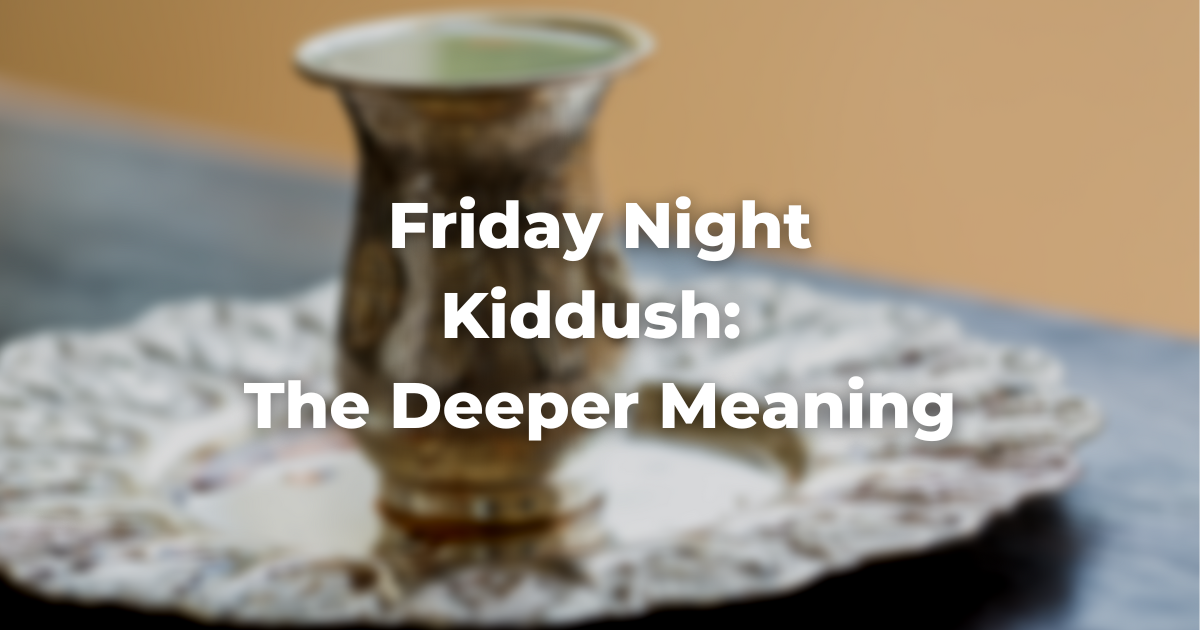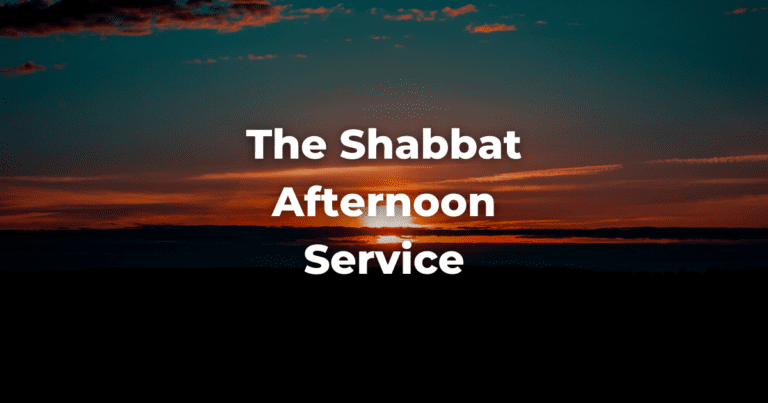RITUAL OF WELCOME FOR SHABBAT
Shabbat, the climax of the Jewish week, begins each Friday night, and the Kiddush (“sanctification”) is the traditional home ritual declaring the unique holiness of the day.
Recited over a cup of wine at an elegantly set table just before the festive meal begins, the Kiddush sets a tone of peace, beauty and majesty. Yet perhaps the most striking aspect of the Kiddush is that it includes two competing claims, both from the TorahRefers to the first five books of the Hebrew Bible, the Tanakh, also called the Five Books of Moses, Pentateuch or the Hebrew equivalent, Humash. This is also called the Written Torah. The term may also refer to teachings that expound on Jewish tradition. Read more (Exodus 20:11, Deuteronomy 5:15), about the essential meaning of Shabbat.
Each claim is encapsulated in a key phrase.
THE KIDDUSH CONNECTS SHABBAT TO CREATION
The first phrase describes Shabbat as zikaron le-ma’asei v’reishit, “a memorial to Creation.” In the Torah’s very first story, God created the world in six days and rested on the seventh, setting it aside as blessed and holy (Genesis 1:1-2:3).
And so in observing Shabbat, we emulate God.
It follows that we should spend our workweek using our creative powers, as God did on Days 1-6. On Shabbat, rabbinic tradition bids us to let go of our worldly concerns – devoting the day to prayer and spiritual uplift, relaxation and enjoyment. We catch up on our reading or play board games. We take naps or nature walks. We enjoy the time for contemplation and private reflection.
THE KIDDUSH CONNECTS SHABBAT TO REDEMPTION
The second key phrase is zekher li-tzi’at mitzrayim, “a memorial to the Exodus from Egypt.” Here the Kiddush reveals two additional dimensions of Shabbat, as the quintessential day of freedom, and as a day of community.
According to the Torah, all household members, regardless of gender or class, are to enjoy the privilege of rest (Even work-animals are included!). Everyone is included. On Shabbat, we gather in the synagogue to celebrate it with others (Or, when it is not possible to do so due to Covid-19 restrictions, via video technology.). We share meals together. We take time with family and visit with friends.
Good fellowship forces us out of the confines of the ego and enriches both the self and others.
Shabbat is a particularly Jewish institution. Yet the Kiddush’s linking of the day with the Creation and Exodus has implications that are universal and timeless. Below are just a few examples.
SHABBAT HELPS US FOCUS ON OUR CONNECTION TO THE EARTH
Genesis teaches that before God rested on Shabbat, God created the earth and all that is in it, with human beings as the denizens-in-chief. Our mandate to “rule” the earth must not be misunderstood as a license for exploitation.
Instead, as earthly creatures, we bear the responsibility to protect and sustain our precious environment and all its inhabitants.
WE ARE PART OF THE FAMILY OF HUMANITY
The Creation narrative teaches that all human beings were made in the image of God (Genesis 1:27 and Genesis 5:1-2), implying that each of us shares a bond with all humankind. Shabbat bids us to focus on that commonality.
SHABBAT IS A DAY OF LIBERTY
As spiritual descendants of former slaves, we must demonstrate empathy for those not yet free. Indeed, we have obligations beyond mere empathy.
We must assume responsibility to be active in the effort to eliminate slavery, to be sure – and also poverty, war and the violation of human rights. Our mission to promote freedom for all is tied to the message of Creation – that all people, without exception, are entitled to dignity and respect.
SHABBAT LOOKS FORWARD TO A WORLD REDEEMED
The world as we know it is far from perfect, yet Shabbat offers a model for its betterment and challenges us to consider how to do better still.
What if all people had enough to meet their basic material needs? What if everyone enjoyed the right to earn a decent wage? And what if everyone could take, on a regular basis, the time necessary for bodily refreshment and rejuvenation?
Shabbat sets a high standard, and its ideal vision allows us to glimpse of how things should and could be. This may be what our ancient sages had in mind when they described Shabbat as me-ein olam ha-ba – an inkling of the world to come, a world redeemed.
By highlighting the connection of Shabbat to both Creation and the Exodus, the Kiddush seems to hint that it is not enough to approach Shabbat as a “consumer.” It is equally, if not more important, to be a “giver.” Shabbat is most effective if we can carry over something of its joy, holiness and blessing into the week ahead, for the good of the self, the world and all who dwell in it.
Author
-

After receiving a music degree from Brandeis, Rabbi Dina Shargel settled contentedly into a career as a music teacher. Then, as her "dreaded 40th birthday approached," she took on some new spiritual challenges, including a deeper commitment to Jewish ritual and immersion in Torah study. By 2006, she had earned an M. A. in Bible and rabbinic ordination from JTS, leading to a wonderful second career that included serving two major Conservative congregations. From 2020, she became a freelancer, officiating at life cycle events, teaching B’nai Mitzvah, and pandemic-era Zoom Adult Ed courses. Rabbi Shargel died in February 2025.
View all posts






